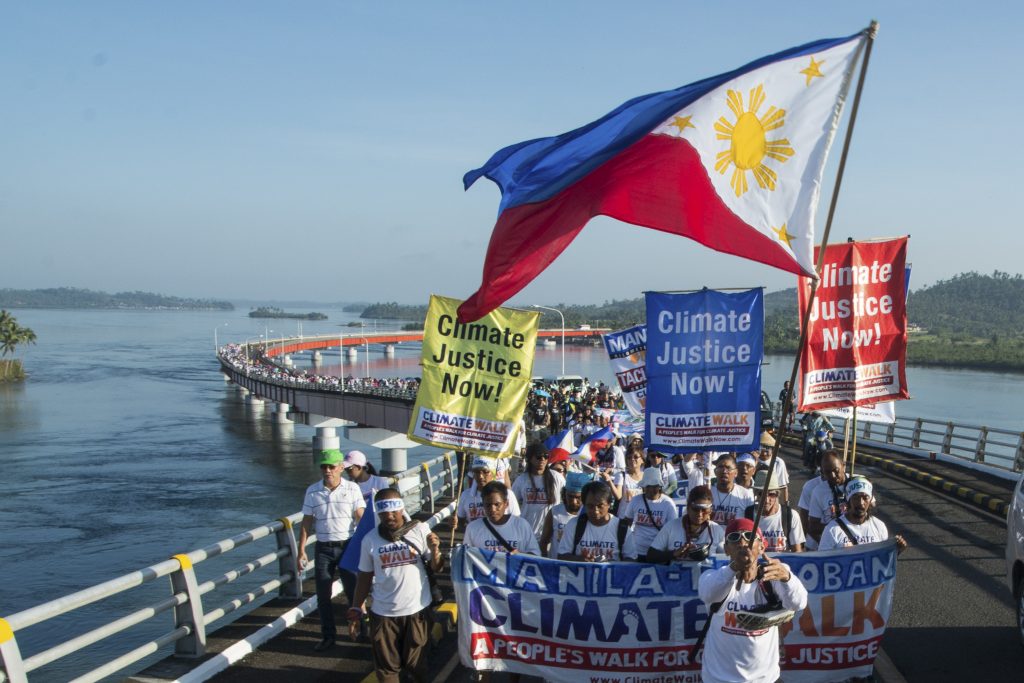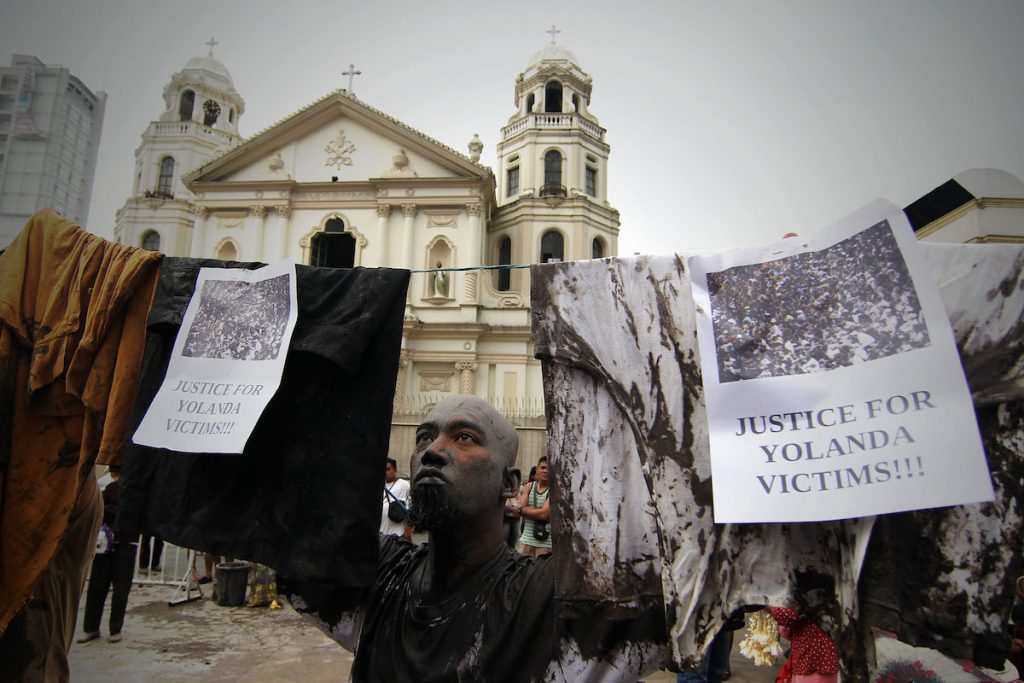
Vincent Basiano was at it again. The 38-year-old survivor of super typhoon “Haiyan” was back in the streets, demanding justice for what he described as the Philippine government’s “failed” reconstruction program in areas devastated by the 2013 disaster.
On November 8, the country marked the seventh anniversary of the landfall of the super typhoon that affected millions of people and killed more than 6,000 individuals.
As the Philippines reeled from another devastation this week brought by typhoons “Rolly” (Goni) and “Ulysses” (Vamco), Basiano and other survivors in the central Philippine city of Tacloban prayed that Filipinos will not experience the “neglect and injustice” suffered by the victims of “Haiyan.”
The group Community of Yolanda Survivors and Partners, or CYSP, claimed that the government’s reconstruction program for areas affected by Haiyan “did not adequately address pre-existing vulnerabilities of survivors, such as those of informal settlers.”
“Sufficient attention was never given to community participation necessary to achieve a people-centred reconstruction process,” said the group, adding that “there remains no effective mechanism to make erring officials and employees of agencies … accountable.”
The group said that while there have been well-documented inefficiencies and corruption at various levels of the bureaucracy, “it remains unclear if anyone has been seriously prosecuted and made to account.”
They said the verbal threats of President Rodrigo Duterte to punish corrupt officials were never translated into actual exacting of accountability.
“All these send a dangerous message that serious corruption issues in disaster response can go unpunished,” read a statement from the group, which includes faith-based organizations.
“Hopefully, this will not happen to the survivors of typhoon ‘Rolly’ during reconstruction works,” it added.
People Surge, another group of “Haiyan” survivors, said the government’s response to disasters “has always been insufficient and highly ineffective.”
“Government neglect and disaster capitalism are exactly the reasons why we remain in this horrible situation,” said the organization that has been lobbying for the prosecution of government officials over what they described as “criminal neglect” in the “Haiyan” disaster response.
In October 2019, the Presidential Anti-Corruption Commission urged the Office of the Ombudsman to file administrative and criminal charges against 12 officials of the National Housing Authority over the bungled housing projects in devastated areas. The cases remained pending.

Inadequate help
In his small housing unit in the city of Tacloban, Basiano complained about his electricity and water supply.
“Our electricity and water connections were not free, contrary to the promise made by Duterte,” he told LiCAS News. He said the water is not eveb potable.
In December 2019, Basiano and his fellow survivors wrote a letter to the Office of the President regarding their predicament. They haven’t received any formal reply since.
“Many promises have been made, many ‘deadlines’ have passed and a variety of sporadic ‘temporary’ responses have been offered, but the people still wait,” read the CYSP statement.
The organization said that with destruction brought by typhoons “Rolly” and “Ulysses,” the proposed establishment of a disaster management department has become “relevant and timely.”
“If there is one thing that [the typhoons] remind us of, it is that destructive typhoons that cause incalculable damage to life and properties are here to stay,” said the group.
“Government’s responsibility is to address climate change and ensure effective disaster response management and coordination,” it added.
Citing the lessons from their Haiyan experience, the group reiterated their call for the government “to create a central agency that will manage, coordinate and oversee disaster response with a budget of its own.”
While the government has its National Disaster Risk Reduction Management Council, which is tasked in assisting disaster preparedness and responding to emergencies, the group said it is “certainly not equipped to manage long term recovery and reconstruction.”
The government, however, maintained that the rehabilitation in Haiyan-hit areas is still top priority of the government.
Secretary Karlo Nograles, head of an inter-agency task force to address the reconstruction of affected communities, noted that the government had already completed 135,765 housing units while the construction of 38,058 units are still ongoing.
He said while the coronavirus pandemic posed delays the housing project will be done before the president steps down from office in June 2022.
“If there have been delays, we speed it up, and our turnovers continue so we will be able to give free houses to the typhoon [Haiyan] victims,” said Nograles.
Source: Licas Philippines
0 Comments